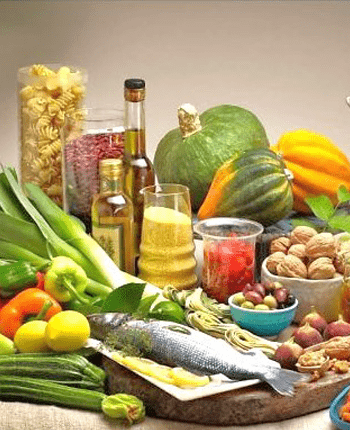
Pneumonia is also regarded as the leading cause of children mortality all over the world. In fact, this deadly disease claims the lives of more than 1.4 million children under the age of five every year, as reflected in the data collected by the World Health Organization (WHO). Pneumonia also cost the US economy a whopping $40.2 billion in direct and indirect mortality costs in 2005 alone.
Image Source: alpineclassic.org
Given these statistics, I guess most of you will agree that pneumonia is indeed a cause for concern not only to those who are extremely susceptible to this deadly disease but to their families as well. So, how can pneumonia be prevented? How can you keep yourself and your family safe from this deadly disease? Well, research indicates that you can keep pneumonia at bay by adding some healthy fats to your Mediterranean diet. Would you like to know more about this? Well, I bet you would!
Understanding Pneumonia – Risk Factors, Causes and Symptoms
The American Lung Association defines pneumonia as an inflammation of the lung primarily caused by bacterial and/or viral infection. Pneumonia often results as a complication of a pre-existing condition. It usually occurs when a person’s immune system is compromised or weakened, such as when the person suffers from a simple case of respiratory viral infection or influenza.
Among the primary risk factors that predisposes a person to pneumonia includes the following:
Age. Very young children and people age 65 and older are more at risk of contracting pneumonia.
Immune deficiency diseases and other chronic illnesses. People with HIV/AIDS and those who have diabetes or heart and lung diseases are more at risk of developing pneumonia.
Exposure to chemicals and pollutants. People who are working in agriculture and industrial settings and those who work around chemicals are at a greater risk of developing pneumonia. Those living in highly urbanized environments and are exposed to air pollution and toxic fumes are also more likely to develop the disease.
- Smoking and alcohol abuse.
- Being in close living quarters.
- People who have recently received an organ or bone marrow transplant and those who are undergoing chemotherapy.
Among the symptoms that may indicate pneumonia includes the following:
- Headache, muscle pain and fatigue
- Fever
- Coughing and shortness of breath
- Sweating and shaking chills
- Chest pains
Left untreated, pneumonia can lead to several complications which may include septic shock, pleural effusion (accumulation of fluid around the lungs), emphysema, lung abscess and acute respiratory distress syndrome (ARDS). It may also trigger multiple organ failure resulting from the spread of bacteria in your bloodstream.
How to Prevent Pneumonia by Eating Right
While pneumonia may respond favorably to treatments, it may also require the patient to be hospitalized especially if the patient is very young or older than 65 and is experiencing confusion, low blood pressure and rapid breathing.
However, there is a simple yet effective way of avoiding the disease – and that is by adhering to the Mediterranean way of eating. Experts agree that the best way to protect yourself against pneumonia is by keeping your immune system healthy. As such, it is best to eat plenty of fresh fruits and vegetables (especially those that are rich in vitamins, A, C and E, zinc and bromelain) on a daily basis. It is also advisable that you stay away from sugar, refined carbohydrates, alcohol and mucus-forming foods such as chocolates and dairy products.
Moreover, recent studies indicate that adding healthy fats to your Mediterranean diet can also protect you against pneumonia. According to a report published in the American Journal of Clinical Nutrition in 2005, people who are getting higher amounts of omega-3 (from fatty fish) and omega-6 fatty acids (from nuts and healthy oils such as olive, canola and soybean) in their diets are less susceptible to the disease.
Now that you know how to prevent pneumonia with the Mediterranean diet, are you ready to make that change? Think about it.
Stay healthy,
Ray Baker


